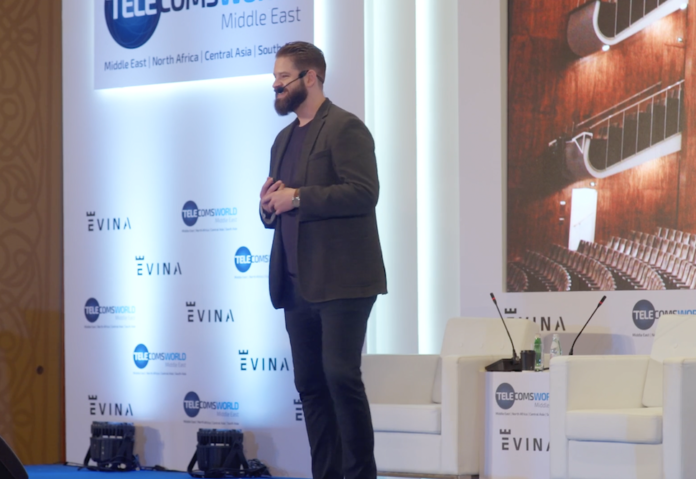The positive use for automated social engineering
US-based Wavelo was founded by Justin Reilly, a man who started out building technology stacks for top tier US operator Verizon. His own American revolution was to re-engineer the olde worlde class system of the previous century, where telcos dictated imperiously and codify a new constitution in language that talks with people rather than at them. The battle over augmentation and automation was intense but the AI revolution is working for the people at telcos, according to Reilly.
Reilly set about tearing down the old rigid structure of the BSS/OSS classes, that were based on a hierarchical business and operation support systems that “prevent telcos from delivering best-in-class customer service they desire to offer,” as he very politely puts it. Many of we telco subscribers might compare the old customer experience to being treated like a disenfranchised underclass. Now in a world where the customer can vote and candidates competing to hear what they want, telcos need to be more sensitive to market intelligence and ready to shift resources in response to supply and demand.
After developing these systems for customers like DISH and Ting Internet, he is now leading technology Wavelo which gives operators with the services he’d wanted at Verizon. The two main offerings are an ISOS (Internet Service Operating System) for ISPs and a MONOS (Mobile Network Operating System) for telcos. Wavelo supports these with services on everything from subscription and billing management, through network orchestration and provisioning, to individual developer tools and more.
These services, though invaluable, are always time consuming and expensively labour intensive. So Reilly is a big fan of artificial intelligence, which has the potential to become the responsive, empathetic and efficient service partner. At MWC in Barcelona, shared his thoughts on the future of AI for business. Mobile Europe put its own questions to him.
What good will AI do? Does it disappoint customers more efficiently than a human reading a script?
The big hangover from the last AI hype-cycle is the debate of automation versus augmentation. In 2016, they said AI’s large language models (LLMs) weren’t powerful enough to handle the cognitive load and context switching of the conversation. In theory, with the advancements in AI that’s largely gone now.
The challenge still remains, as now that a machine understands human language and can carry the context forward, what happens when it needs to take action? In telecom, this means hitting a series of systems that are 10 to 30 years old.
Wavelo acts like jet fuel for large language models like ChatGPT, making it easier to take action when a customer needs a task completed. It enriches the logic learning machine making it smarter and faster, as it emits all of the events happening in a telecom’s system. They get instant clear information on every event in the telecom. The new point of contention is over the user Experience and user Interface (UE/UI). It then becomes more of a UI/UX decision on the human’s part because the handoff to a telecom human customer service rep can come much later, or not at all. At the brand level, it’s about answering the age-old question of: How do we want your brand to feel to the consumer?
Where do we start addressing this? Our clients can give customers better experiences by relieving three pains: in the back-office and employee experience to make them more productive, at the network to automate quality and performance, and to service customers more cost effectively. Having relieved the pain, there is an interesting gain to be made. This interesting fourth plinth of AI, that hasn’t been possible until now, will be a platform to launch new products and services at the interface of customers and telcos.
People could actually have enjoyable conversations with a machine?
The world’s most valuable information is in what customers pay, use and want next. With the advancements in AI, Wavelo makes it easier to get that.
What is did Wavelos track record on this? What has Wavelo ever done to make human and machines operate efficiently.
Most consumers’ problems with telecoms stem from the rigidity of the telecom’s billing system. This makes it impossible to understand your bill, change services, save money… the list is endless. Telcos pull the levers they have, we want to give them new levers.
The beauty of a cloud-native, event-driven design is its speed, flexibility and scale. Freeing telecoms from historically rigid systems improved the relationship between both customer and operator and operator and network. We provide MVNOs, ISPs, and MNOs the needed optionality to succeed in an era of rapid network innovation.
Is Wavelo’s dream a generation of small, powerful and extremely nimble telcos?
We believe that access and competition drive innovation because more choice for humans means a better quality of life. By providing fast, modular and scalable solutions operators can focus resources on the things that matter most, customer experience and rapid expansion.
Legacy systems stifle invention and slow responsiveness to changing market dynamics. Communication service providers (CSPs) had to fully replacing legacy billing and provisioning systems, which is painfully expensive. Wavelo’s alternative approach works in tandem with legacy systems and can be adopted faster. We virtualise network operators and create Open Access for ISPs, which in turn creates better options and prices. When this is not offered, in Canada for example, people are forced to pay top prices to connect their lives.


